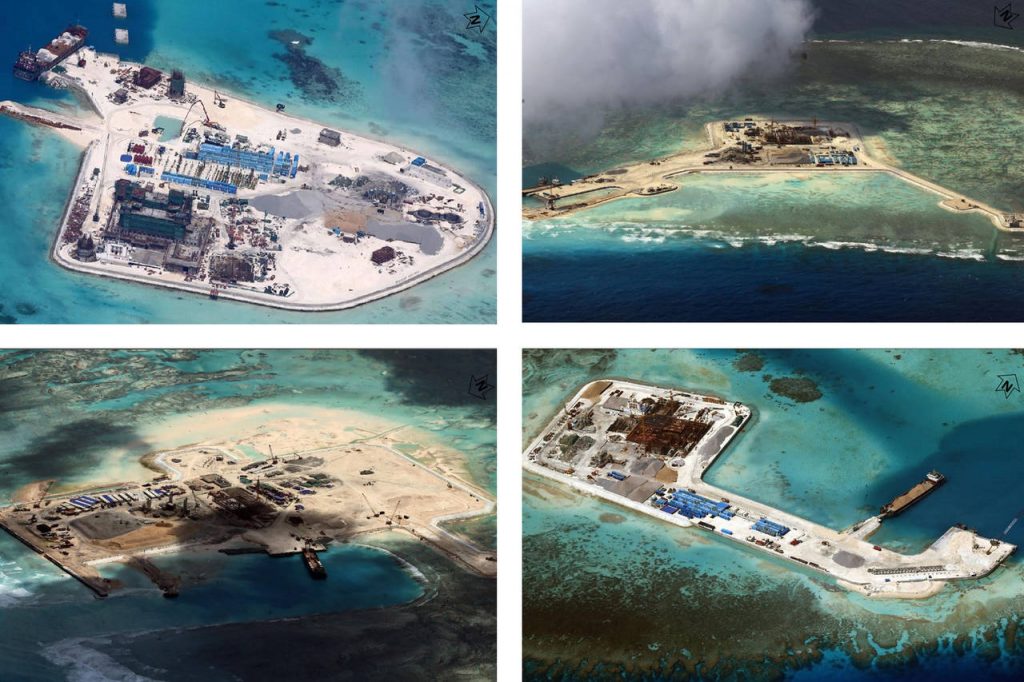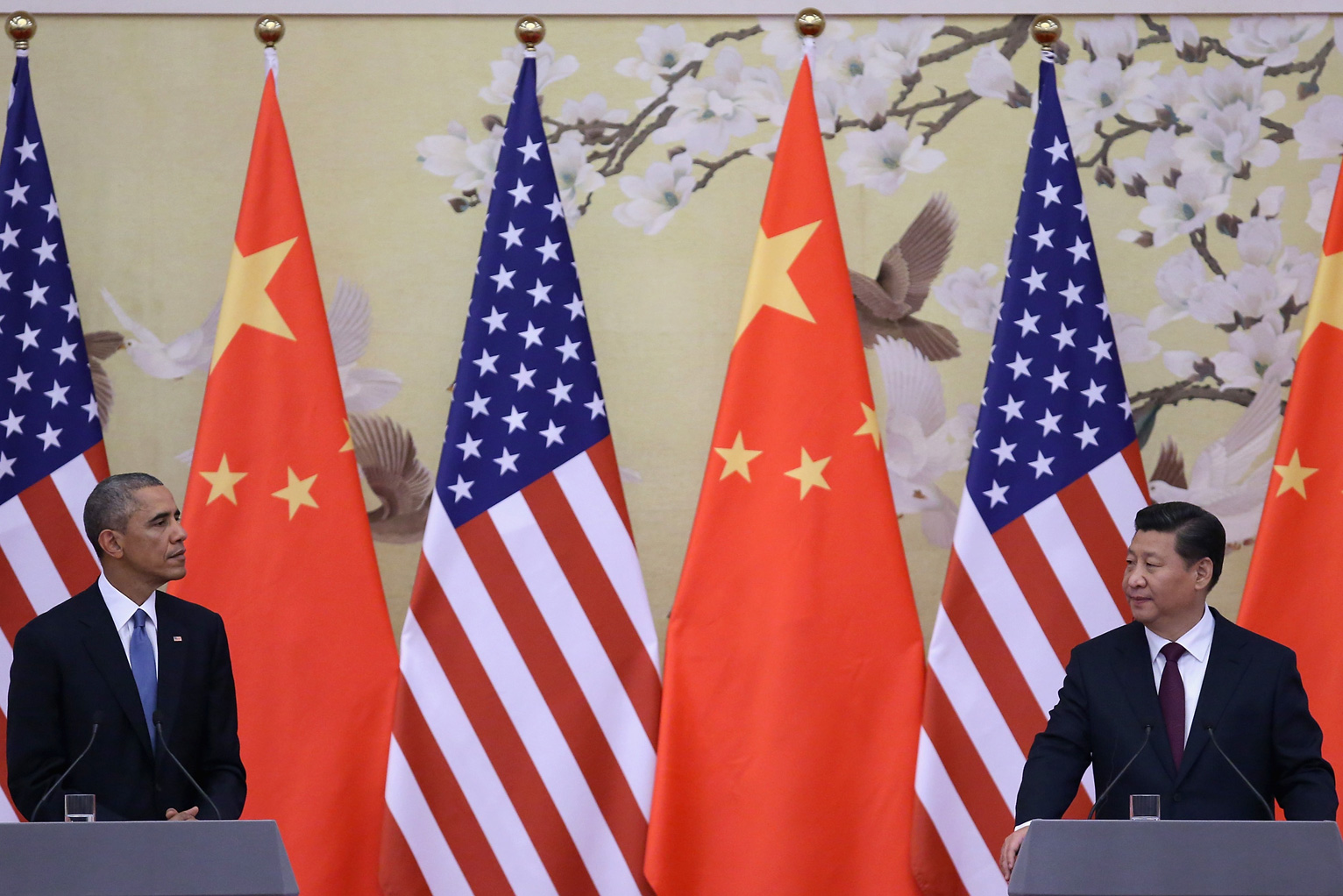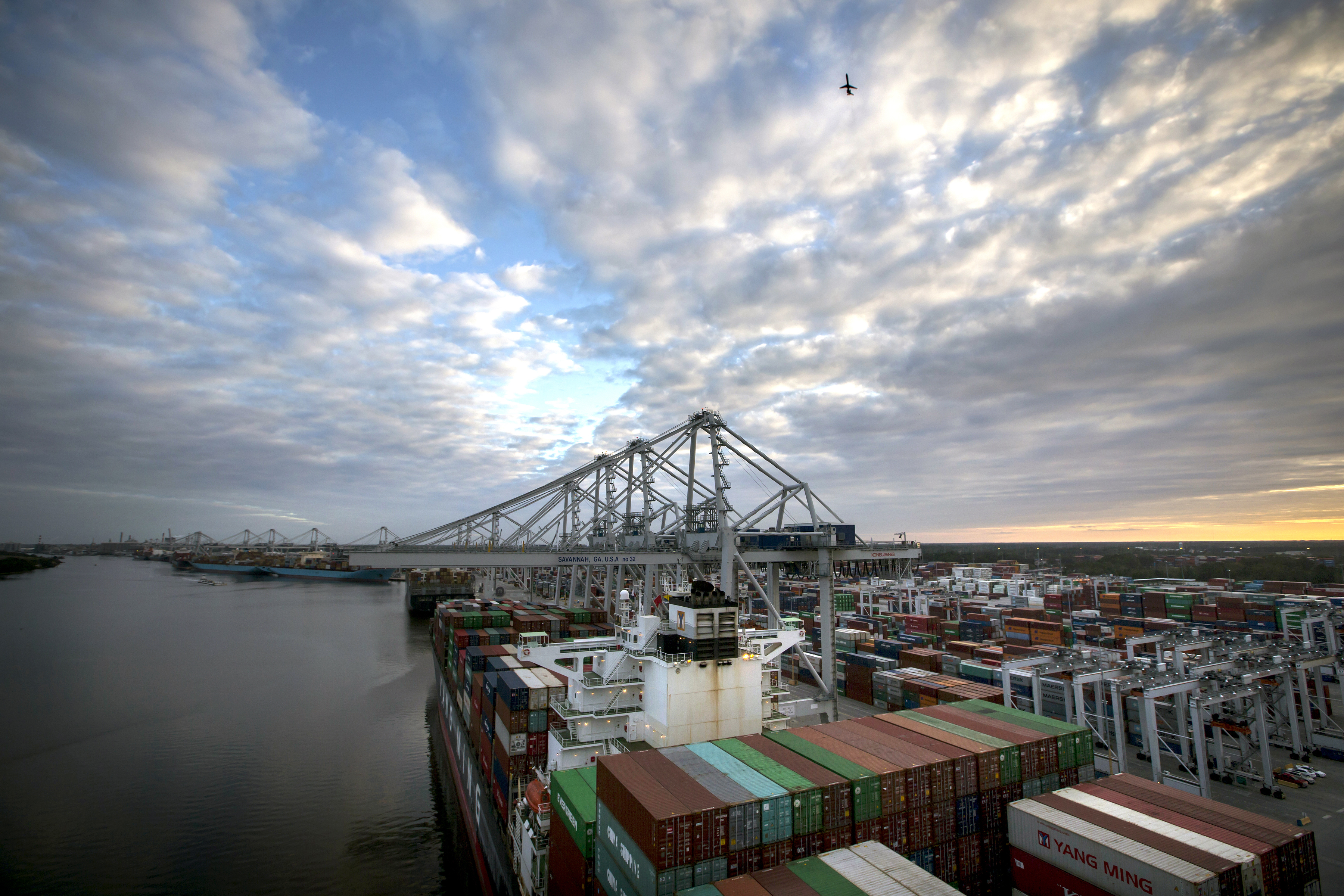State visits are normally a time for celebrating the relationship between the leaders of two countries. But when Chinese President Xi Jinping visits the United States in September, the atmosphere will be anything but that of celebration. The U.S.-China relationship has evolved in the post-Cold War era, as China has gradually asserted itself on the international stage. From handing out economic grants to developing countries around the world to growing the size and sophistication of its armed forces, China has established itself as the major rising power in Asia.
Recent Sino-American history does not bode well for the upcoming state visit; indeed, at its best, the relationship is quite tense. It is against this backdrop that American President Barack Obama prepares to roll out the carpet for President Xi. Of course, it is a tricky situation to prepare the docket for a state visit: should the U.S. take a hard line against Chinese aggressions, or should it use the state visit as an opportunity to bridge gaps between the two countries?
Obama administration officials, Chinese delegates, and third-party observers have all taken different lines in approaching Xi’s visit. The Chinese would prefer if the United States did not bring all the issues between the two countries, making the state visit only about increasing cooperation, or, if anything is brought up, restrict the conversation to China’s recent commitment to lower energy emissions ahead of the 2015 energy summit in Paris. The Obama administration, for its part, has been wary of employing a tougher policy against China, even while one senior administration official claimed, “I think we look at the China relationship in very realistic terms.”
Recent events in the last two weeks – namely, the free-fall of international markets, which were stimulated by a collapse of Chinese markets – have generated ire among third party observers. Several Republican presidential hopefuls have found Xi’s upcoming visit as the perfect opportunity to score points in the overcrowded field. Wisconsin Governor Scott Walker called on President Obama to cancel President Xi’s visit to the U.S. “Rather than honoring Chinese President Xi Jinping with an official state visit next month,” Gov. Walker said, “President Obama should focus on holding China accountable over its increasing attempts to undermine U.S. interests. Given China’s massive cyberattacks against America, its militarization of the South China Sea, continued state interference with its economy, and persistent persecution of Christians and human rights activists, President Obama needs to cancel the state visit.”
Florida Senator Marco Rubio, another Republican candidate, has issued strong words regarding President Xi’s visit and, broadly, the Obama administration’s Chinese policy: “President Obama has continued to appease China’s leaders despite their mounting aggression,” Senator Rubio wrote in a recent Wall Street Journal op-ed. “He has hoped that being more friendly with China will make it more responsible. It hasn’t worked.” In the course of his op-ed, Sen. Rubio did not go as far as Gov. Walker in calling for the White House to cancel Xi’s visit, but he did offer advice the administration, saying that they should “downgraded [President Xi’s trip] to a working visit from a state visit,” as “this is an opportunity to speak bluntly to this authoritarian ruler and achieve meaningful progress, not to treat him to a state dinner.”
Although Gov. Walker and Sen. Rubio are attempting to increase their standing among the Republican candidates with their strong comments, they do cite several key issues that have stressed the Sino-American relationship. Arguably, the security dynamic of the Sino-American relationship is most important, as the two states possess nuclear weapons and large, developed militaries. Two topics – cybersecurity/espionage and Chinese expansion into the South China Sea – could dominate President Xi’s state visit.
Cybersecurity and Espionage
The United States was rocked this summer by a hacking scandal unlike any it has experienced before in the digital era, as the U.S. government’s database on the Office of Personnel Management (OPM) was hacked. An estimated 22.1 million Americans – federal government employees, contractors, and their families and friends – were affected by the intrusion into the OPM’s network. The hack was so dangerous because the files gathered included the sensitive information used in security clearance applications. “It is a very big deal from a national security perspective,” said FBI Director James B. Comey. “It’s a treasure trove of information about everybody who has worked for, tried to work for, or works for the United States government.”
To make matters worse, it appears that the source of the breach was the Chinese government. Although the United States never officially accused the Chinese of hacking the OPM database, several administration officials cited China as the source anonymously.
This was not the first time, either, that the Chinese have hacked U.S. government databases in order to farm sensitive information. A federal government contractor handling OPM-delegated background checks, as well as the Department of Homeland Security, was hacked by the Chinese in 2014.
China has also been suspected of increased espionage activity in the United States, pressuring ethnic Chinese who have come to the United States to return home, as well as committing various acts of industrial espionage (examples of which can be found here, here, and here). The Obama administration recently sent a warning to officials in Beijing that the country should withdraw its government agents working covertly to pressure Chinese expatriates in the United States to return home. According to American officials, the Chinese agents are part of the Ministry of Public Security. Since 2014, the beginning of what officials call Operation Fox Hunt, approximately 930 suspects have been repatriated.
China’s espionage and hacking activities have further driven a wedge between the United States and China, one began in part by China’s actions towards U.S. allies in the Asia-Pacific region.
Chinese Expansion into the South China Sea

Few of China’s actions have generated as much international outcry as their territorial expansion into the South China Sea, especially the reclamation of islands from the sea as new bases. China is in the position of the quintessential rising regional power, trying to assert itself in the international arena and dominate its geographic region. The United States, in comparison, has long held a similar position in the Americas, beginning with its successful implementation of the Monroe Doctrine and through its economic agreements in modern times, such as the North American Free Trade Agreement.
China’s expansion has brought it into contact – and, perhaps, eventual conflict – with other countries in the region, many of whom are U.S. allies. As part of its “Pivot to Asia,” the U.S. has expanded its presence in the Pacific, both deploying more units and striking new cooperation agreements with partner states in the region. The U.S. struck a new military cooperation agreement with Japan in April of this year. Among other provisions, the agreement will allow Japan to defend regional allies that come under attack. It also will streamline cooperative operations via a standing “alliance coordination mechanism.”
On the other side of China, the U.S. has begun a period of increased cooperation with India. This period arguably began with the 2005 U.S.-India Civil Nuclear Agreement (commonly referred to as the 123 Agreement), which acted as a legitimization of the Indian nuclear program, despite Indian refusal to sign the Nuclear Non-Proliferation Treaty. In recent months, high profile visits to India by President Obama and Secretary of Defense Ashton Carter have stimulated a new defense cooperation agreement with the Indians. In June 2015, Carter signed a 10-year agreement, named the Defense Trade and Technology Initiative.
The United States also signed a military pact with the Australians in August 2014, strengthening a long-standing defense relationship with another Asian-Pacific power. The 25-year deal doubles the number of American troops training with the Australian military. Calling the US-Australian relationship “a bedrock for a stable and secure order,” then-Secretary of Defense Chuck Hagel said that the U.S.-Australian Force Posture Agreement will “advance America’s ongoing strategic rebalance in the Asia Pacific.”
It is in the light of these agreements and others that the Chinese expansion into the South China Sea, building islands and declaring new territorial waters. The United States and its strategic rebalance to the Pacific threaten China and its growing might. For China to become a regional hegemon, it will have to expel U.S. influence from the region. From the Chinese point of view, the Americans are building their own power in the region against Chinese expansion.
Chinese expansion into the South China Sea – and ongoing American pivoting to the region – will hopefully be on the table during President Xi’s state visit.
What’s to be Done?
It appears that the Obama administration will not take too hard of a stance against Chinese aggression during the state visit. Administration officials characterize the relationship as one of “accentuating areas of cooperation and managing differences,” and Xi’s state visit will most likely follow these lines. It is unlikely that a groundbreaking agreement comes out of the visit, although smaller achievements may be possible. The United States and China will bring vastly different interests to the table; cooperation between the two states, while beneficial for the global order, may be more fiction than reality.


